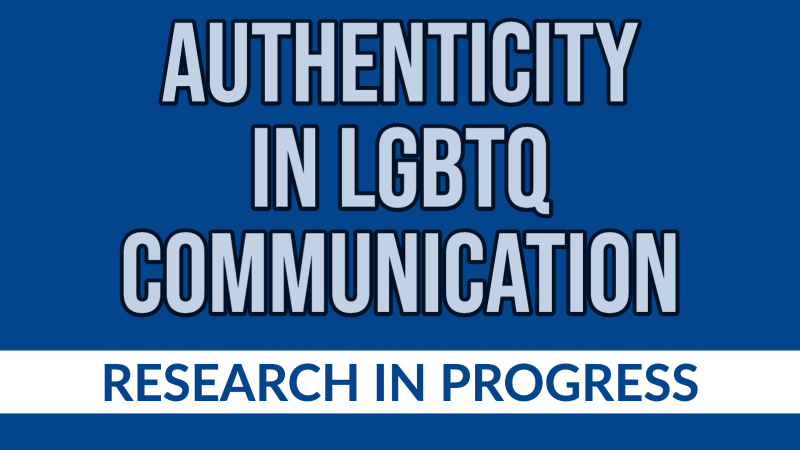Research in Progress: As brands engage in social advocacy, authenticity is increasingly important
October 4, 2022

By E. Ciszek, University of Texas at Austin
(Co-authors Sally Hayoung Lim, University of Oregon and Won-Ki Moon, University of Florida)
Mindlessly scrolling through my Instagram feed early one morning in June, I stumbled upon a targeted Pride advertisement for Skittles, a multicolored fruit-flavored candy. Full disclosure: I’m indifferent about this candy and the brand.
But I start reflecting on this moment and my ambivalence kicks in. On the one hand, as a queer person, the marginalized and unseen dimensions of my identities crave for consumer recognition, while on the other hand, my internal rainbow-washing radar goes off in full force. Do brands like Skittles and parent organizations like Mars Wrigley really care about what I think or have to say? Are any of these messages authentic?
As more brands and organizations engage in social advocacy to voice their position on social justice issues, authenticity is increasingly important. Due to skepticism and misinformation, authenticity is one of the most significant factors in message reception. Authenticity is an integral part of ethical communication that shapes perceptions of an organization.
Recent research shows that organizational communication directly impacts audience perceptions of intent, credibility, transparency, social responsibility and trust. So, that Skittles ad is sounding the authenticity alarm in my brain.
In June 2021, DISQO – a user experience media company – surveyed more than 10,000 consumers to learn their attitudes toward LGBTQ+ oriented advertising and understand the impact of LGBTQ+ ads during Pride month and beyond. The study reveals concerns about authenticity of LGBTQ+ advertising, as just over half of LGBTQ+ respondents (53.2 percent) felt that ads targeted toward the LGBTQ+ community feel authentic.
Involvement in LGBTQ+ content creation is valued by LGBTQ+ people, with nearly three-quarters of respondents who self-identify as LGBTQ+ (70.6 percent) said that it was important to them that advertising and content are made with the involvement of people who are part of depicted communities. These industry data provide research opportunities to dive more deeply in to the space of LGBTQ+ communication.
These industry data are a springboard for our research, where we build out a more nuanced conceptualization of authenticity and organizational listening in LGBTQ+ communication. Through a framework of organizational listening, we explore public perception of authenticity and listening with a focus on LGBTQ+ communication. We explore what people believe about LGBTQ+-focused campaigns and how they communicate organizational values.
In this research, we explore how historically underrepresented and marginalized publics understand organizational listening and how they feel about communication campaigns targeted at their minority identities. We attend to what LGBTQ+ publics tell us about organizational listening and the gaps that exist in research and practice. By listening to historically marginalized groups, like LGBTQ+ publics – we offer a conceptualization of perceived organizational listening in LGBTQ+ communication.
As organizational LGBTQ+ efforts are increasingly more common, organizations are experiencing pressure for more tangible commitments to LGBTQ communities. Organizational listening needs to be a significant practice for entities wanting to move away from performative support to organizational allyship.
Our research puts forth an organizational listening scale, exploring how LGBTQ and non-LGBTQ publics perceive organizational listening within the context of an LGBTQ campaign. We consider how sexual-orientation, gender identity, race and ethnicity affect perceptions of organizational listening.

